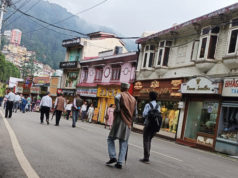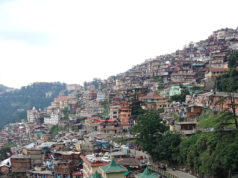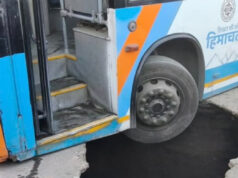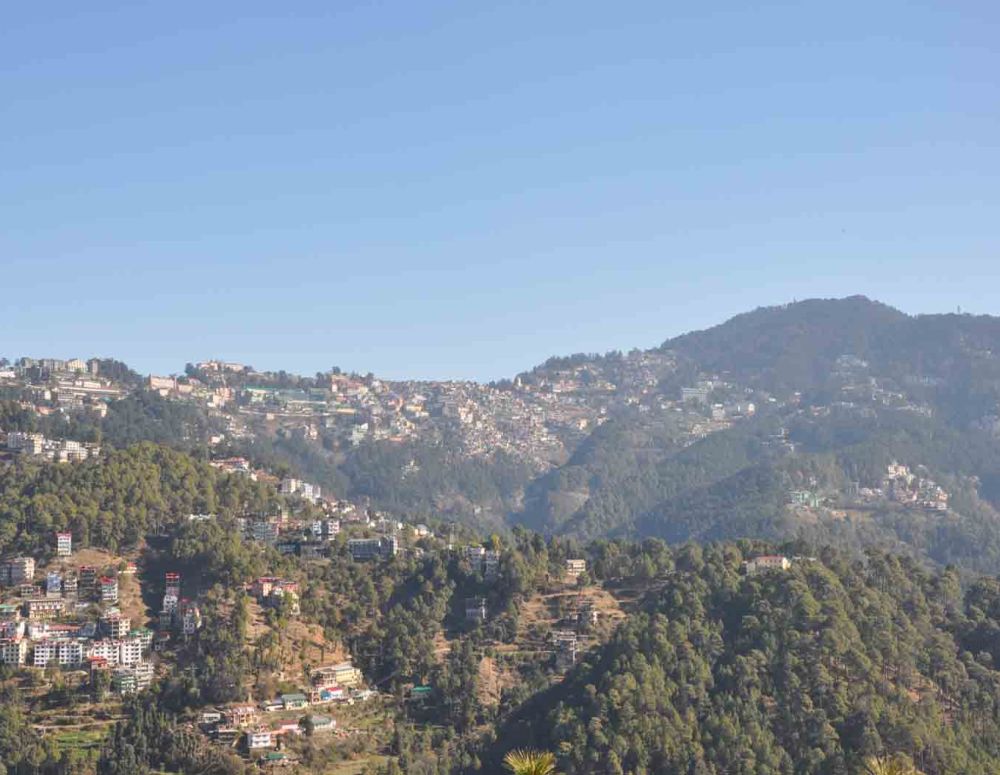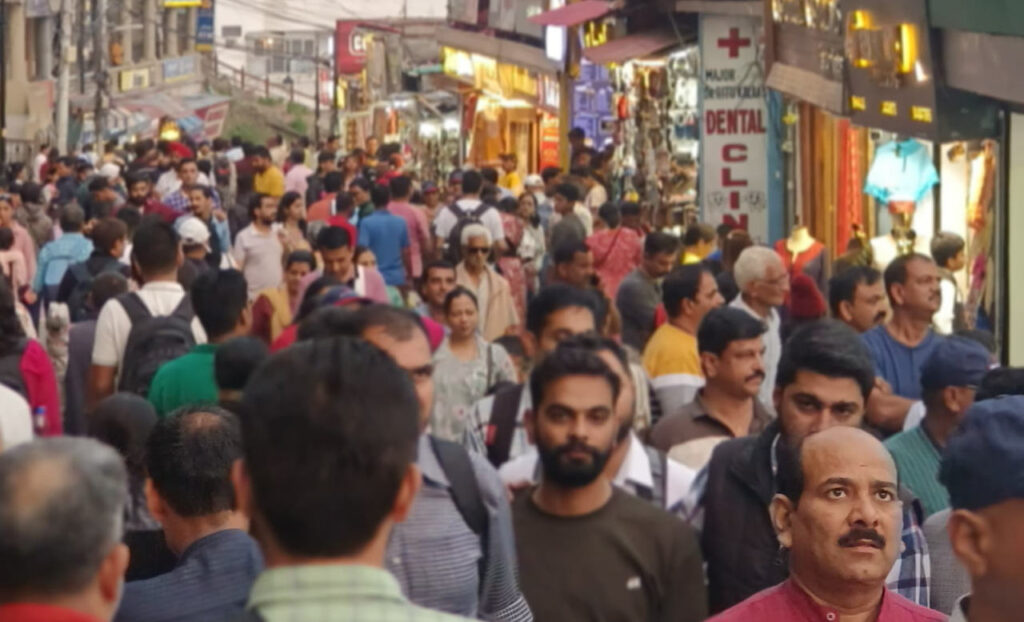
Shimla — Mall Road, Shimla’s iconic promenade known for its colonial architecture, bustling shops, and breathtaking views, is grappling with the burgeoning issue of overtourism. This surge in visitors threatens to erode the charm and sustainability of one of India’s most cherished tourist destinations.
Overtourism has taken a noticeable toll on Mall Road. The repercussions are multifaceted and alarming. The influx of tourists has led to increased foot traffic and littering, straining the delicate ecosystem surrounding Mall Road. The scenic beauty that once drew visitors is now marred by waste and wear.
During peak seasons, the sheer number of tourists makes it challenging to enjoy Mall Road’s ambience and attractions. What was once a leisurely stroll now feels like navigating through a congested street. The daily lives of Shimla’s residents are disrupted by the constant buzz of tourism. Traffic congestion, noise pollution, and inflated prices have become commonplace, altering the town’s peaceful rhythm. To cater to tourist demands, Mall Road has seen a surge in commercialization. This shift threatens to erode the unique charm and historical character that define the area.
Addressing overtourism requires a comprehensive and proactive strategy. Promoting responsible tourism that minimizes environmental impacts and supports local communities is crucial. This includes initiatives like waste management programs and eco-friendly infrastructure. Implementing measures such as timed entry slots or caps on daily visitors can help control overcrowding and ensure a pleasant experience for all. Encouraging tourists to explore lesser-known areas of Shimla can distribute the economic benefits of tourism more evenly and reduce the strain on Mall Road. Involving local residents in tourism planning and ensuring they reap the benefits can foster a sense of ownership and commitment to sustainable practices.
Balancing tourism and preservation is essential to maintain Shimla and its iconic Mall Road’s allure. By adopting sustainable tourism practices and managing visitor numbers, Shimla can protect this iconic destination for future generations while continuing to welcome tourists from around the world. The path forward lies in collaboration, innovation, and a steadfast commitment to preserving the unique character that makes Mall Road a beloved landmark.
As Shimla navigates this complex issue, it stands as a testament to the broader challenges faced by tourist destinations globally. The steps taken here could serve as a blueprint for sustainable tourism practices worldwide, ensuring that the wonders of today remain for the explorers of tomorrow.


